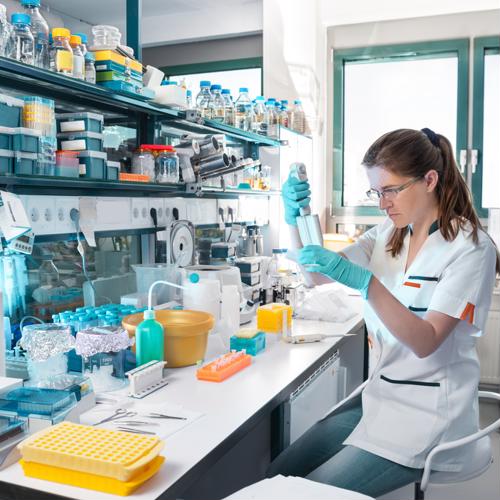European Study Addresses Sperm Damage in Infertile Males
In a preliminary study that may eventually lead to new treatments for male infertility, a group of European researchers have determined that sperm DNA from the testicles of infertile men is often as good as that of ejaculated sperm from fertile men.
 The study, which has yet to be published in a peer-reviewed journal, was presented last week at the European Association of Urology Congress in Barcelona, Spain. It demonstrated that on a path from the testicles to ejaculation, sperm can suffer major damage. Hence, the study opines that instead of using ejaculated sperm, it may be possible to remove sperm directly from the testicles for use in fertilizing eggs, allowing infertile men to have children.
The study, which has yet to be published in a peer-reviewed journal, was presented last week at the European Association of Urology Congress in Barcelona, Spain. It demonstrated that on a path from the testicles to ejaculation, sperm can suffer major damage. Hence, the study opines that instead of using ejaculated sperm, it may be possible to remove sperm directly from the testicles for use in fertilizing eggs, allowing infertile men to have children.
As part of the study, the researchers used sperm samples from the testicles of 63 men who had been deemed infertile. They compared the samples with ejaculated sperm from the same individuals. For further comparison, they used ejaculated sperm samples from 76 fertile men.
“When we looked at ejaculated sperm, we found that the extent of sperm DNA damage was much higher in infertile men than in fertile men, with roughly 15 percent in fertile men, but 40 percent in infertile men,” said study author Dr. Jonathan Ramsay, who serves as a consultant urologist at Imperial College, London.
Why does this occur? Well, the fancy name for it is oxidative stress.
Ramsay explained to those present at the urology conference that this type of “stress” occurs most often because of poor lifestyle habits that include smoking, poor diet or obesity, and being continuously sedentary (i.e. sitting at a desk or laptop all day). Diseases such as Type 2 Diabetes or Crohn’s Disease can also cause oxidative stress, he added.
As wonderful as this finding seems, it’s important, said the researchers, that infertile couples realize that this is just one potential cause of infertility among men and may not be the main cause of infertility or the main reason that assisted reproductive technology fails when a man is considered infertile.
“We can’t yet prove that this sperm DNA damage is the main cause of male infertility or [assisted reproductive technology] failure in these men, or that using testicular sperm directly would help improve their chance of getting pregnant, but the work certainly points in that direction,” said Sheena Lewis, another of the study authors and a retired professor at Queens University, Belfast, Ireland.
It’s also essential to remember that there are multiple causes for infertility aside from damaged sperm. However, the findings in this study could certainly one day be integral in paving the way for many couples who are struggling with infertility to eventually realize their dream of starting a family.
More research into this theory will be conducted in the near future, the authors note.
